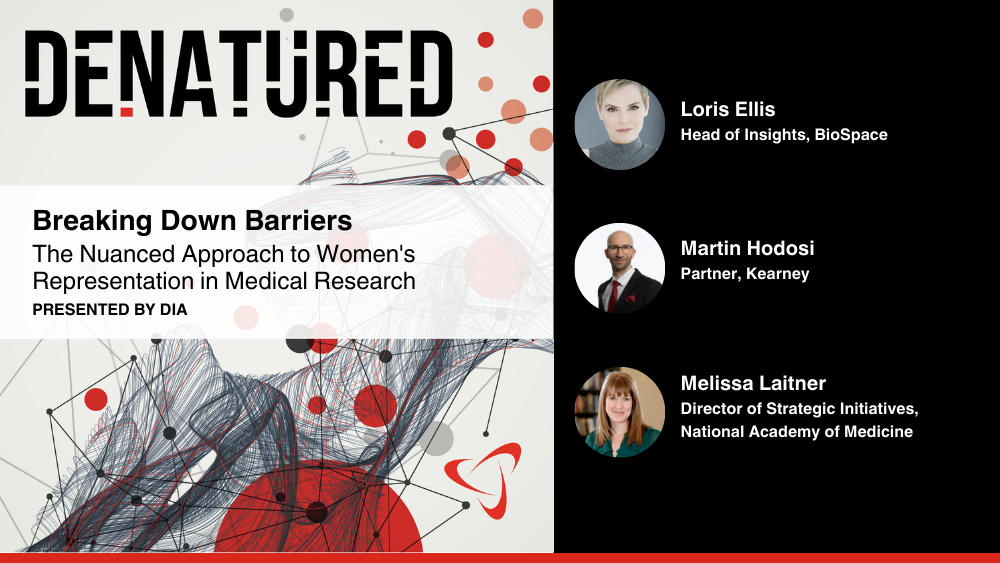KB105 was well tolerated with no adverse events or immune response following redosing Clearly detectable TGM-1 expression in all treated areas following initial and repeat administration. KB105-expressed TGM1 was correctly localized in the epidermis, co-localizing with loricrin, and was functionally active Phenotypic evaluation of KB105 treated areas showed reduced reversion to ichthyotic scaling phenotype Amy Paller, M.D., Professor and Chair of Dermatology at Northwestern University
KB105 was well tolerated with no adverse events or immune response following redosing
Clearly detectable TGM-1 expression in all treated areas following initial and repeat administration. KB105-expressed TGM1 was correctly localized in the epidermis, co-localizing with loricrin, and was functionally active
Phenotypic evaluation of KB105 treated areas showed reduced reversion to ichthyotic scaling phenotype
Amy Paller, M.D., Professor and Chair of Dermatology at Northwestern University shares detailed results at the Society for Investigative Dermatology (SID) annual meeting today
Phase 2 study in 4-6 pediatric patients anticipated to initiate in the second half of 2020
PITTSBURGH, May 14, 2020 (GLOBE NEWSWIRE) --Krystal Biotech, Inc. (Nasdaq:KRYS), a gene therapy company dedicated to developing transformative medicines to treat diseases caused by protein or gene dysfunction, today announced interim results for a first-in-human Phase 1/2 placebo controlled clinical trial evaluating topical administration of KB105 in patients with autosomal recessive congenital ichthyosis (ARCI) being presented at the Society for Investigative Dermatology (SID) annual meeting. Following today’s results, Krystal plans to enroll pediatric patients in the Phase 2 portion of the clinical trial.
“Topical administration of KB105 affords a simple painless way to treat the causative defect in patients suffering from TGM1-deficient ARCI, a debilitating skin disease in which patients have disfiguring generalized scaling and poor skin barrier function, putting them at increased risk for superficial infections caused by bacteria and fungi,” said Amy Paller, M.D., Walter J. Hamlin Professor and Chair of Dermatology and Professor of Pediatrics at Northwestern University, Feinberg School of Medicine and principal investigator of the KB105 Phase 1/2 clinical trial. “These early data support and warrant continued evaluation of KB105, including extension to pediatric patients and optimization of dose and dosing regimen.”
Pooja Agarwal, Ph.D., Senior Vice President of product development at Krystal Biotech added, “These results are an early positive signal that KB105 has the potential to provide a meaningful benefit to ARCI patients and supports the planned expansion of our other pipeline programs based on our platform.”
KB105 Phase 1/2 Interim Clinical Trial Results
Study Design and Baseline Characteristics Summary
The interim results summarize data from three adult patients, aged 39, 24, and 20 years old who participated in a randomized placebo-controlled study to receive either topical KB105 (2e9 pfu/site) or placebo in circular skin areas of 20cm². The KB105 treated areas were biopsied following a single treatment to assess onset of expression and following multiple repeat administrations to assess durability and efficacy of repeat dosing.
Safety update
Safety data from all three patients showed that repeat dosing with KB105 was well-tolerated with no drug related adverse events and no immune response to the HSV modified vector or TGM1. Also, no vector shedding or systemic exposure was detected in any of the three patients.
Efficacy update
- KB105-treated areas showed clearly detectable TGM-1 expression in all treated sites following initial and repeat administration. KB105-expressed TGM1 was correctly localized in the epidermis, co-localizing with loricrin, and was functionally active.
- QPCR, immunofluorescence and in situ analysis demonstrated similar delivery efficacy of TGM1 DNA from single and repeat administration.
- Phenotypic evaluation was limited by small treatment areas, but KB105 treated areas showed reduced reversion (reduction by 2 points on the IGA scale) to disease phenotype.
- Micro-needling pre-treatment did not show any significant increase in expression when compared to direct topical administration without micro-needling, especially after repeated application.
- Dr. Paller’s SID Phase 1/2 interim clinical results presentation link: SID #263 KB105: https://youtu.be/l8HGAbxBG2U
Next Steps
Krystal plans to initiate a Phase 2 study in pediatric patients in the second half of 2020. The Company hopes to incorporate the new ichthyosis severity score scale into studies for clinical validation.
About Krystal Biotech
Krystal Biotech, Inc. (NASDAQ:KRYS) is a gene therapy company dedicated to developing and commercializing novel treatments for patients suffering from dermatological diseases. For more information, please visit http://www.krystalbio.com.
About KB105
KB105 is Krystal’s second product candidate, currently in clinical development, and seeks to use gene therapy to treat patients with TGM1-deficient ARCI. KB105 is a replication-defective, non-integrating viral vector that has been engineered employing Krystal’s technology platform to deliver functional human TGM1 gene directly to the patients’ dividing and non-dividing skin cells. HSV-1 is Krystal’s replication-deficient, non-integrating viral vector that can penetrate skin cells more efficiently than other viral vectors. Its high payload capacity allows it to accommodate large or multiple genes and its low immunogenicity makes it a suitable choice for direct and repeat delivery to the skin.
About Autosomal Recessive Congenital Ichthyosis
Transglutaminase 1 (TGM1) is an essential epidermal enzyme that facilitates the formation of the epidermal barrier, which prevents dehydration and protects the skin from unwanted toxins and surface microorganisms. The loss of TGM1 activity results in the severe genetic skin disease autosomal recessive congenital ichthyosis (ARCI) of the lamellar ichthyosis subtype. Most patients with a TGM1 deficiency exhibit life-long pronounced scaling with increased transepidermal water loss (TEWL). The scales are plate-like, often of a dark color, and cover the whole-body surface area. Underlying erythroderma can be profound in severely affected individuals, but is masked by the overlying scale. Patients often have ectropion and, at times, eclabium, hypoplasia of joint and nasal cartilage, scarring alopecia, especially at the edge of the scalp, and palmoplantar keratoderma. Additional complications include episodes of sepsis, fluid and electrolyte imbalances due to impaired skin barrier function, and failure to thrive, especially during neonatal period and infancy. Severe heat intolerance and nail dystrophy are also frequently observed. TGM1 deficient ARCI is associated with increased mortality in the neonatal period and has a dramatic impact on quality of life. No efficient treatment is available; current therapy only relieves some symptoms. There are approximately 23,000 cases of TGM1 deficient ARCI worldwide and about 400 new cases per year globally.
Forward-Looking Statements
Any statements in this press release about future expectations, plans and prospects for Krystal Biotech, Inc., including but not limited to statements about the development of Krystal’s product candidates, such as plans for the design, conduct and timelines of ongoing clinical trials of beremagene geperpavec (“B-VEC”) and KB105; the clinical utility of B-VEC and KB105 and Krystal’s plans for filing of regulatory approvals and efforts to bring B-VEC and KB105 to market; the market opportunity for and the potential market acceptance of B-VEC and KB105; plans to pursue research and development of other product candidates; the sufficiency of Krystal’s existing cash resources; the unanticipated impact of COVID-19 on Krystal’s business operations, pre-clinical activities and clinical trials; and other statements containing the words “anticipate,” “believe,” “estimate,” “expect,” “intend,” “may,” “plan,” “predict,” “project,” “target,” “potential,” “likely,” “will,” “would,” “could,” “should,” “continue,” and similar expressions, constitute forward-looking statements within the meaning of The Private Securities Litigation Reform Act of 1995. Actual results may differ materially from those indicated by such forward-looking statements as a result of various important factors, including: the uncertainties inherent in the initiation and conduct of clinical trials, availability and timing of data from clinical trials, whether results of early clinical trials or trials will be indicative of the results of ongoing or future trials, uncertainties associated with regulatory review of clinical trials and applications for marketing approvals, the availability or commercial potential of product candidates including B-VEC and KB105, the sufficiency of cash resources and need for additional financing and such other important factors as are set forth under the caption “Risk Factors” in Krystal’s annual and quarterly reports on file with the U.S. Securities and Exchange Commission. In addition, the forward-looking statements included in this press release represent Krystal’s views as of the date of this release. Krystal anticipates that subsequent events and developments will cause its views to change. However, while Krystal may elect to update these forward-looking statements at some point in the future, it specifically disclaims any obligation to do so. These forward-looking statements should not be relied upon as representing Krystal’s views as of any date subsequent to the date of this release.
INVESTOR CONTACT
Ashley R. Robinson
LifeSci Advisors
arr@lifesciadvisors.com
MEDIA CONTACT
Darren Opland, PhD
LifeSci Communications
darren@lifescicomms.com
Source: Krystal Biotech, Inc.




